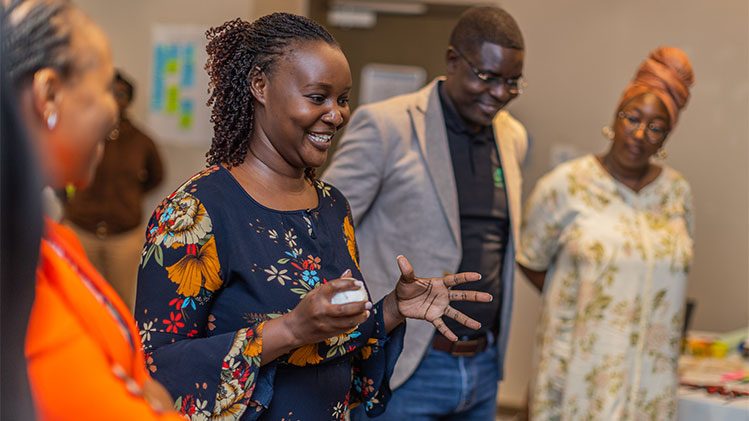Female Social Entrepreneurs in Uganda
Local Solutions for Education and Health
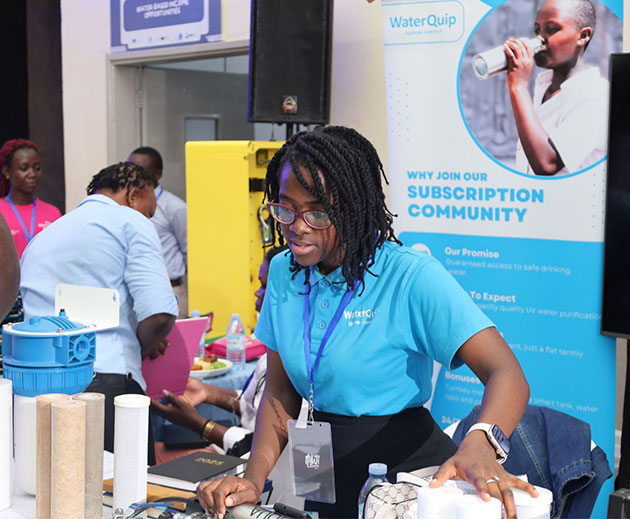
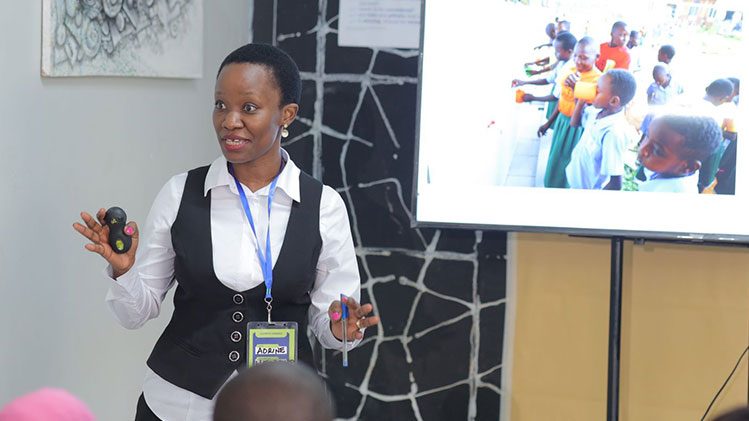
Whenever Adrine Adumanya visits Eden Secondary School in Wakiso, Uganda, she is always warmly welcomed. “I still remember her first visit ten years ago,” says Principal Moses Sizomu. “Back then, a young, dedicated woman with impressive conviction came to us.” From the very first conversation, it was clear: Adrine not only had a vision but also a solution-high-quality, affordable filtration systems for clean drinking water. For the school’s approximately 900 students, this marked a turning point. Since then, cases of diarrhea and typhoid have become a thing of the past, absenteeism has decreased, and concentration in class has improved.
Sustainable Water Filtration Systems in Schools
This is not only the case at Eden School. With her company WaterQuip, which is managed by an all-female team under her leadership, Adumanya supplies almost 700 schools in and around Uganda’s capital, Kampala. The only requirement: schools must have their own water source. The filtration systems, including regular maintenance, are subscribed to by the schools for a monthly fee-saving them high upfront costs. The fact that the water is now professionally purified, instead of being boiled over firewood as in the past to kill bacteria, also saves CO2 emissions and reduces deforestation.
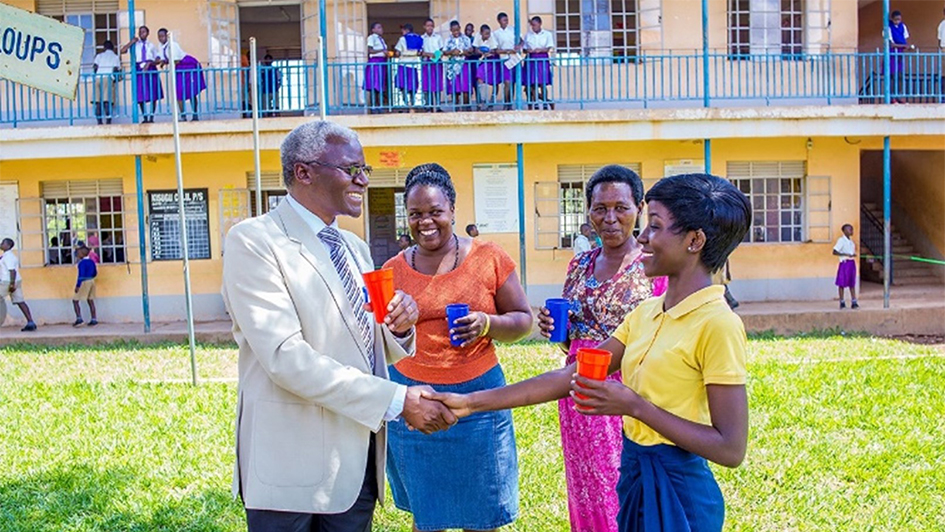
Social entrepreneurship in the fields of water, sanitation, and hygiene (WASH) is on the rise in African countries-and increasingly shaped by women. Women-led companies are developing and distributing products and services, often specifically for female target groups. This was also evident at the “Majipreneurs Summit” (Maji means “water” in Swahili), which took place in April 2025 in Kampala, bringing together providers, investors, and potential partners. In addition to WaterQuip, numerous other women-led companies were represented.
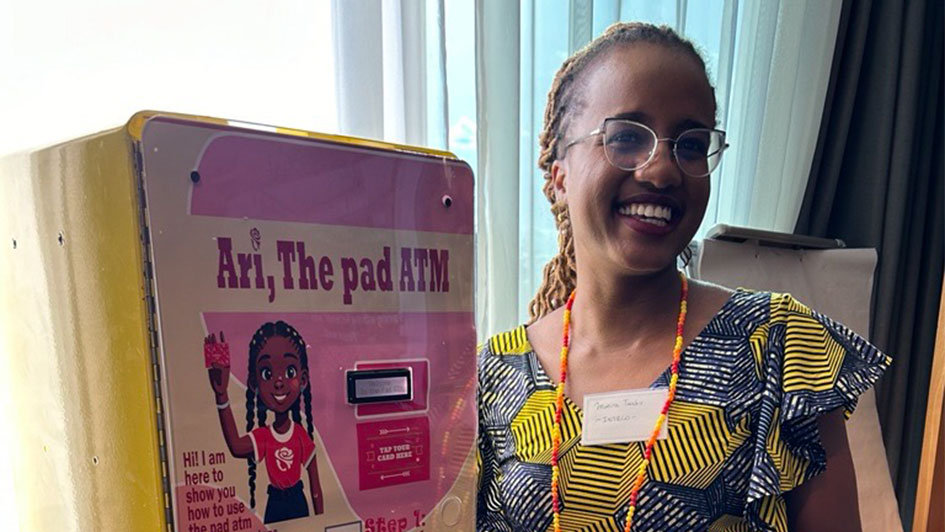
Menstrual Hygiene: Key to Equitable Education
A major focus is on menstrual hygiene-and rightly so. An estimated 65 percent of women and girls in countries like Uganda and Kenya cannot afford or access commercial sanitary pads. As a result, according to UNESCO, about one in ten girls in Sub-Saharan Africa misses school for five to ten days each month-with devastating consequences for their education and future. To address this, Munira Twahir has installed her bright pink “Ari Pad ATM” machines in remote areas. For just nine Kenyan shillings (about seven US cents), a pad can be dispensed like cash from an ATM. There is also a chip card that can be topped up in advance. The ambitious goal of the “Ari Pad ATM”: to supply around 2.2 million women in East Africa by 2030.
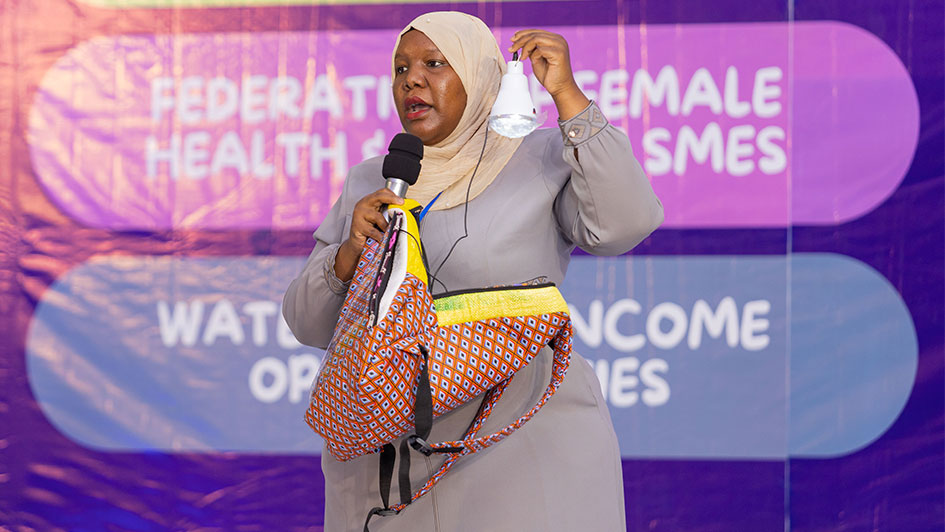
"Even Boys Think This Backpack Is Cool"
Or Jamila Mayanya, founder of Smart Girls Uganda. In addition to training and technology workshops for girls, her social enterprise offers stylish, recyclable backpacks containing pads and other useful items, such as small solar-powered flashlights. Each backpack has a small solar panel for recharging. “Even many boys think it’s really cool and want a backpack,” Mayanya laughs. Smart Girls now employs 100 women and works closely with local NGOs.
Affordable Loans and Effective Networks as Key Criteria
However, socially oriented companies with low profit expectations need additional funding sources to scale their impact. This is where Capital Solutions comes in. The financial service provider and Siemens Stiftung partner was founded in 2014 by Joyce Tamale. Tamale knows that women who want to become social entrepreneurs often have limited access to affordable loans, few market connections, and less effective networks. Traditional gender roles and, as a result, lower self-confidence in their own leadership abilities are further obstacles.
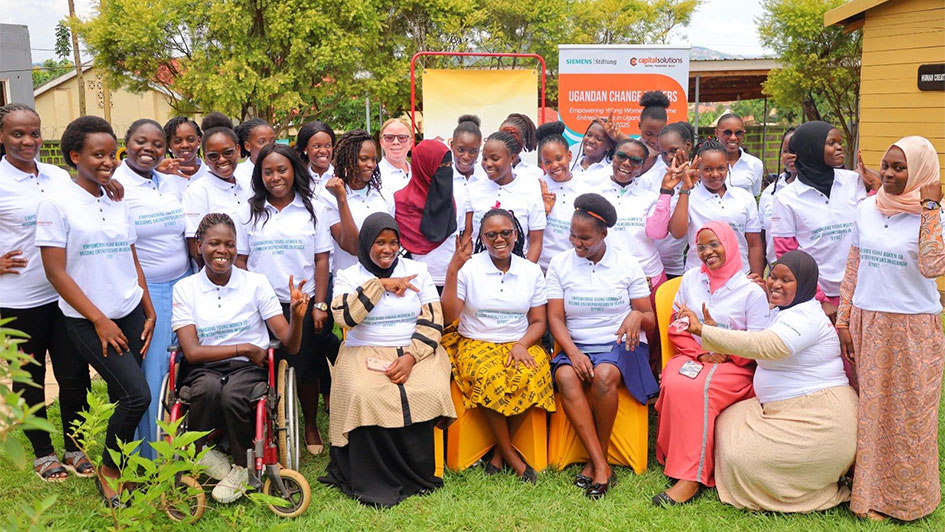
Capital Solutions therefore takes a multi-level approach: there is the Micro Impact Fund, which provides loans between 300 and 3,000 US dollars-at a comparatively low interest rate of two percent. In addition, training and networking opportunities are offered. For example, since January 2025, 100 women aged 18 to 35 have been participating in the “Uganda Changemakers” program, where they can refine their business ideas-in areas such as women’s and maternal health, waste management, and the circular economy-and develop financing and marketing strategies
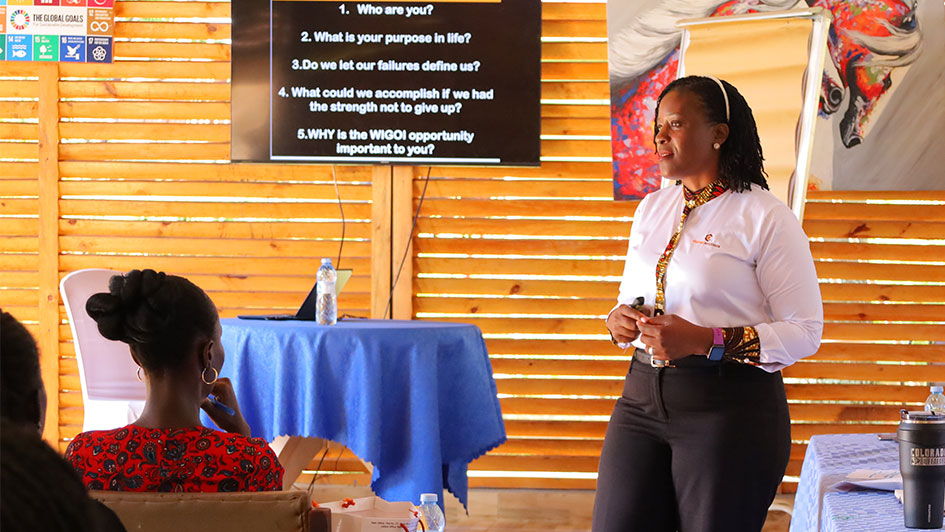
"Women act with heart in their communities"
Capital Solutions founder Tamale is herself the best example that women can succeed in social business and make a big impact. She started with just 100 US dollars, then asked friends and acquaintances until she had raised 15,000 US dollars in start-up capital. Today, Capital Solutions is financed through loan repayments, support from partners, and business training courses offered to external clients. For Joyce Tamale, one thing is clear: “Women are the better social entrepreneurs because they act at the heart of their communities and know exactly what is needed there.”
Of course, you can’t make a fortune as a social entrepreneur. But those who have chosen this path love what they do. Adrine Adumanya of WaterQuip, for example, wouldn’t want to do anything else. “If I stopped working with ‘my’ schools, it would feel like I was letting a lot of people down.”
